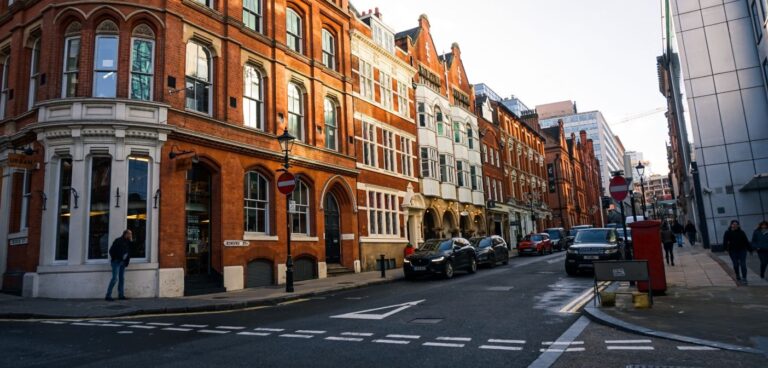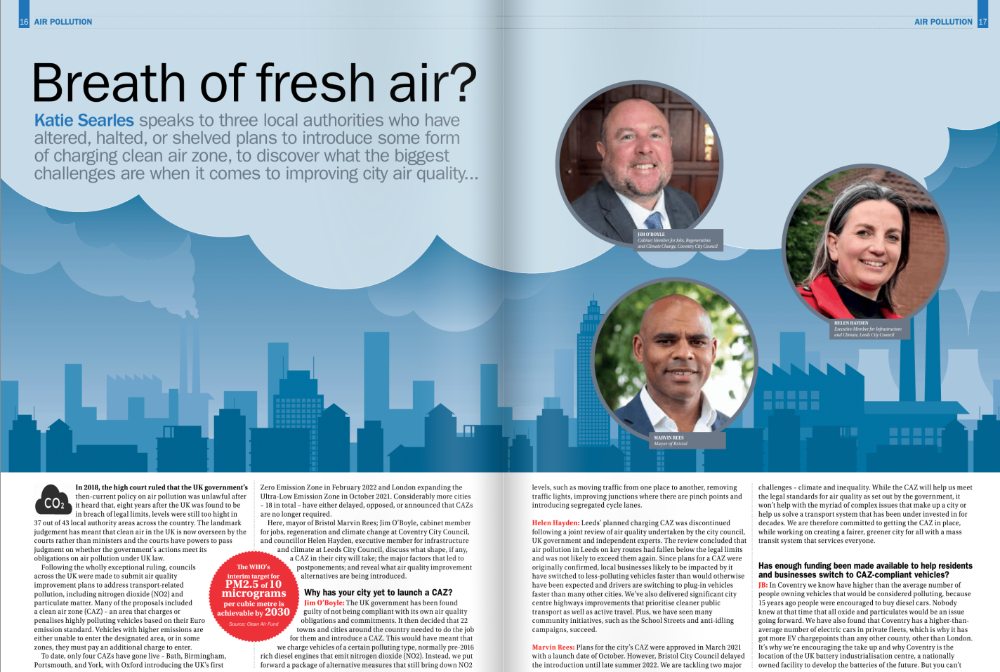Birmingham’s Clean Air Zone has resulted in the levels of the air pollutant nitrogen dioxide falling, according to the first report published by Birmingham City Council.
The interim report on the impact of the CAZ has used data gathered between 01 June and 31 December 2021. The report also includes data about changes to the volumes of vehicles entering the zone as well as the number and percentage of vehicles that are now achieving compliance with the emissions standards.
It has found there has been a 13% reduction in the levels of NO2 within the zone when compared with 2019 pre Covid levels.
Furthermore, from the launch of the CAZ the average rate of compliance for all vehicle categories has increased from 79.8% at the beginning of June to 88.8% at the end of December 2021.
The rate of compliance for passenger vehicles has improved from 81.8% in June to 89.9% at the end of December 2021. Passenger vehicles account for around 88% of all unique vehicles that enter the CAZ on average each day, the data showed.
Additionally, the report also indicated that the rate of compliance for Light Goods Vehicles has improved from 63.3% at the beginning of June 2021 to 77.4% at the end of December 2021.
Read more: Birmingham publishes air quality plan ahead of CAZ
Cllr Waseem Zaffar MBE, cabinet member for transport and environment, Birmingham City Council, said: “These results are a really clear indication that the Clean Air Zone is starting to improve air quality in the centre of our city. It is still very early days for the scheme but if we can maintain this rate of improvement, we are on track to bring the levels of NO2 back within the legal limit.
“We will continue to support individuals and businesses through the transition to becoming a clean air city and I am pleased that we are getting ready to extend the benefits of clean air in the city centre to all parts of Birmingham. Our Clean Air Strategy starts to set out a longer-term plan for change, but it is something that the Council cannot do on its own. Collaboration with partners will be critical. So too is the need for all of us to understand the positive changes we can make every day that help to reduce air pollution.
“We will continue to monitor and publish the data around the operation and impact of the Clean Air Zone. And we will use this data to help shape our longer-term ambitions and policies in this critical area.”
While Birmingham has chosen to introduce a charging CAZ, many councils across the UK have paused or scrapped CAZ plans – hear from three such councils in the March 2022 issue of CiTTi...






